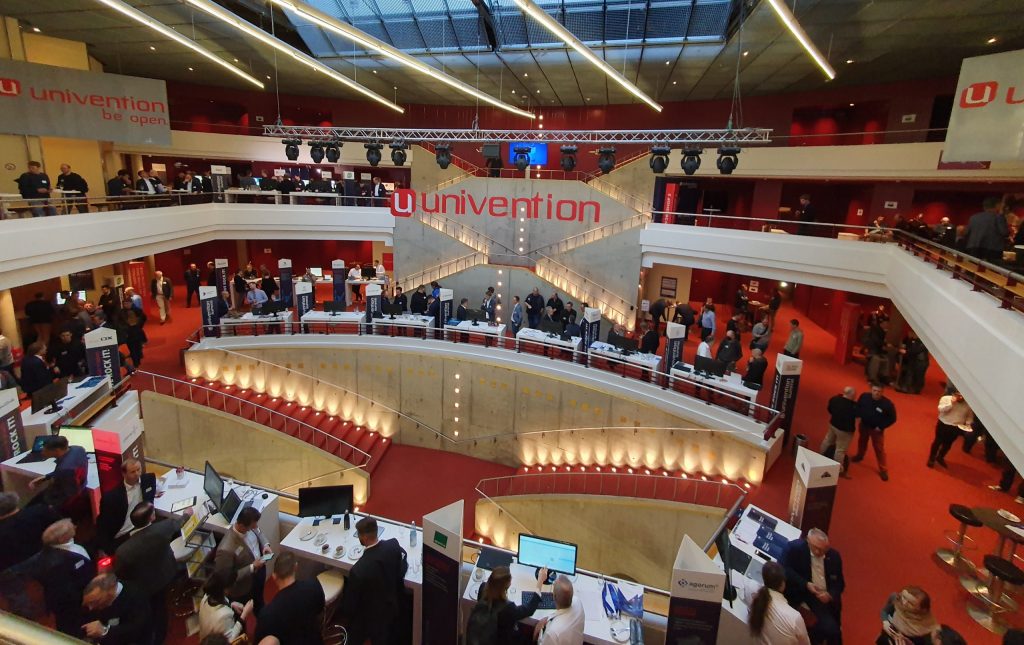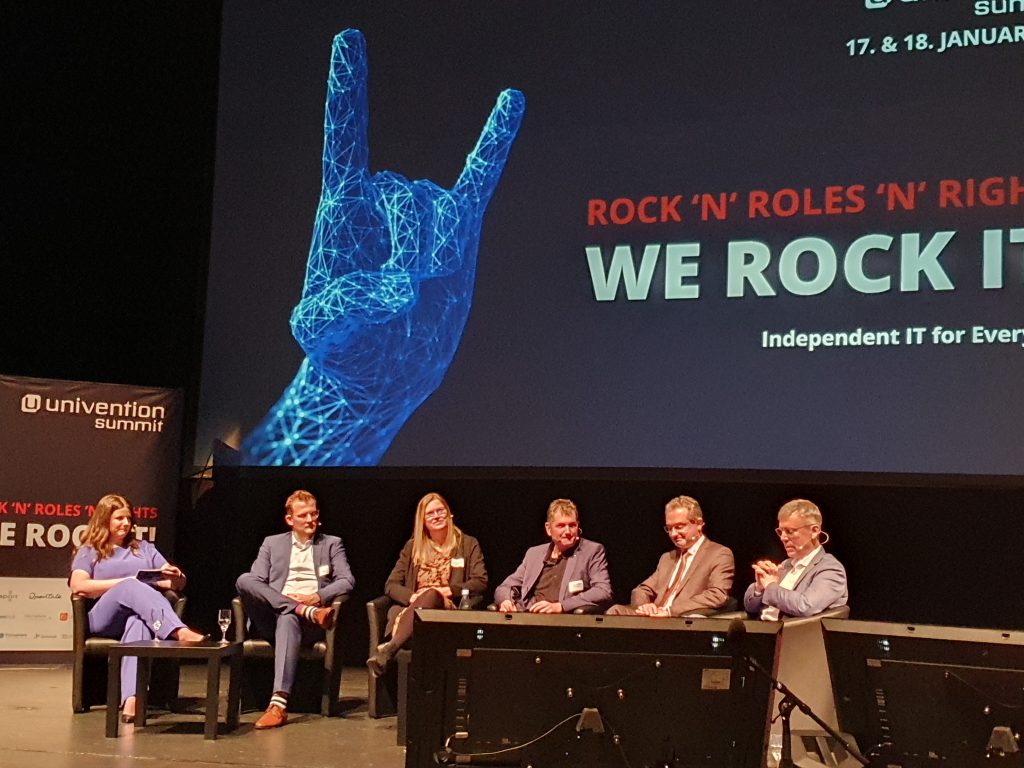The Univention Summit in Bremen traditionally opens the year of open source companies in Germany. They discuss with representatives of the public administration how they can jointly make Germany digitally sovereign and advance the digital transformation. Peter Ganten, Managing Director of Univention and Chairman of the OSBA, summarized the current situation in his keynote and thus also determined the goal of the summit:

The crises of the last few years, but above all the war in Ukraine, have massively questioned the sovereignty of European states and are forcing them to think about security and global dependencies in a completely new way. For the European states, this applies not only to the area of energy, but also to the entire IT landscape, in which there are just as many global dependencies, and which is similarly relevant to society. And it is also similarly vulnerable to oil pipelines, as the global network depends on cables in the oceans that could quickly become targets of attacks. This awareness of vulnerability must also lead in the area of IT to securing it, making it sustainable and transforming it into an open, reliably available basic infrastructure that is then also no longer in the hands of a few.
Overall, the last year has shown that the digital market worldwide is suffering just as much from the global crisis as other parts of the market, with most of the large cloud providers recording losses last year and having to lay off many employees, for example. However, the further development of open source software and its products has grown in comparison and become more established.
In the public administration in Germany, however, there is now a growing awareness that digital sovereignty is an essential building block of national sovereignty. The digital strategy and also the founding of ZenDiS (Zentrum für Digitale Souveränität – Centre for Digital Sovereignty) show that it has been understood that it is important to be able to control what happens with the IT system, who owns it, who has access to it and where data may flow to. Especially when it comes to public administration, when it comes to secret data or data of citizens that need to be protected, it is necessary to have comprehensive knowledge of the systems. At the same time, however, we have learned in recent years that Germany in particular is lagging behind many of its European neighbours in the digitization of administrative processes and the interaction between administration and citizens, but also in the digitization of the education system, and that the people acting in Germany must be in a position to take the reins of action back into their own hands, to be able to shape things themselves.

With this in mind, important players from open source and the public sector have come together in Bremen, because digital sovereignty can only be achieved together, only if there is transparent communication and a diverse open group of active participants can new dependencies be avoided.
Many projects in Germany prove that the approach of relying on open source programs works excellently and that there are partner companies that support this approach, develop it further and use their expertise for public administration. The great example of the Summit is the development of the sovereign workplace (Fig. 1), which is being developed by dataport on behalf of the federal
government and with the involvement of many open source products. In fact, a preliminary version of the complex software is already available, the dPhoenix suite (1), which offers the most common office applications integrated with each other. In the long term, this should be able to run either self-hosted in e.g. state-owned data centers or operated by digital sovereign hosting partners. The sovereign workplace will also have connections to the specialized procedures necessary in public administration and thus hopefully fulfil all the requirements of a digitally sovereign administration.

Overall, the Summit showed me that such events are necessary to enable an open exchange between the administration and developing companies, even away from concrete projects or questions. The modern IT landscape requires so much expertise that the administration or even a single company in Germany or Europe cannot provide the necessary services. This can only be achieved together with openness, transparency, expertise, and open source.
Source:
1. https://www.dphoenixsuite.de/

Friederike Zelke
Editor in chief the cloud report
friederike.zelke@cloudical.io
